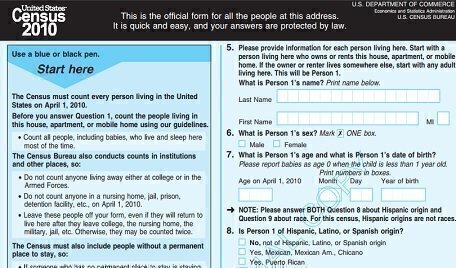Trying again to stop a trial in a federal court in a constitutional dispute over the 2020 census, the Trump Administration rushed into one court on Sunday and then, without waiting for action there, hurried to a higher court on Monday with the same request.
 At issue in both requests is whether a trial judge in New York City must stop all proceedings in a challenge to the Administration plan to ask everyone in American about their citizenship as part of the next federal census.
At issue in both requests is whether a trial judge in New York City must stop all proceedings in a challenge to the Administration plan to ask everyone in American about their citizenship as part of the next federal census.
Both the Supreme Court and the U.S. Court of Appeals for the Second Circuit have refused previously to stop the trial in the U.S. District Court of Judge Jesse M. Furman. But Administration lawyers argued in the new filings that the situation has changed now that the Supreme Court has agreed to review one aspect of that controversy.
Last Friday, the Justices granted an expedited review of the Administration’s plea to limit the kind of evidence that Judge Furman will be allowed to consider in deciding for or against the validity of the citizenship question. That review by the Justices will not involve the ultimate question of whether the citizenship question is legal or constitutional, but could have an influence on that final issue.
Although the Justices stepped into the case, setting a faster-than-usual schedule for filing legal briefs and setting a hearing for February 19, nothing in the Friday order barred Judge Furman from going ahead and finishing a trial. Testimony in that trial ended last week, but post-trial written briefs are due in his court on Wednesday and closing arguments are set to be heard on November 27.
The Administration wants those scheduled activities postponed, and it wants Judge Furman to be blocked from moving forward toward making a final decision, with all of this to be put on hold until after the Supreme Court decides the issue it agreed on Friday to review.
The postponement request was filed in Judge Furman’s court on Sunday, and on Monday he ordered a response by Tuesday from the state and local governments that have sued to challenge the plan to ask the citizenship question on the forms that will go to every household in the nation next year.
The challengers have argued that the question will deter households where immigrants, legal or not, may be living from answering out of fear of deportation. Thus, they contend, there will be a significant under-count in the census, and that will have a negative effect on the allotment to states of the seats in the U.S. House of Representatives and on the distribution of billions in federal funds.
After asking Judge Furman to delay the remaining parts of the trial on Sunday, the government did not wait for action on that request but instead chose to go on to the Second Circuit Court on Monday. It did so, it told the Second Circuit Court, because of the impending deadline on Wednesday to file final trial briefs, saying that an immediate halt to all trial proceedings is necessary. Ordinarily, a request to delay a trial has to be made first, and decided, in the lower court before taking a similar request to a higher court.
The government also contended that the entire controversy will be unnecessarily complicated if the judge goes ahead to make a final decision when the Supreme Court is engaging in a review of what evidence the judge may take into account. The government wants the judge to be confined to only the documents that the government generated in court to explain the decision to add the citizenship question, so he would not be allowed to consider witness testimony and answers given under oath in trial depositions.
The judge, however, has said he will consider both kinds of evidence, but do so separately while awaiting word on what the Supreme Court might decide on which kind of evidence would be proper. The Administration, in its new filings both before Judge Furman and before the Second Circuit Court, strongly implied that the judge could not actually avoid being influenced by the testimony, even if he tried to keep it separate from considering the documents supplied in the case.
Among the testimony that the challengers wanted to gather in questions to be asked under oath was that of Commerce Secretary Wilbur Ross. As head of the government department that includes the Census Bureau, it was Ross’s decision to add the citizenship question.
The state and local governments wanted to question Ross to test their theory that he wanted to add that question because of hostility to immigrants, against whom – the challengers argue — he has an unconstitutional bias. He also was prompted to ask the question, the challengers assert, because of anti-immigrant views passed on to him by White House advisers.
The Supreme Court in previously allowing the trial to go forward had temporarily barred the questioning of Ross until the Justices could decide whether it was proper to require him to submit to such a session. That is one of the specific issues the Justices will be pondering in their review.
Lyle Denniston has been writing about the Supreme Court since 1958. His work has appeared here since mid-2011.







